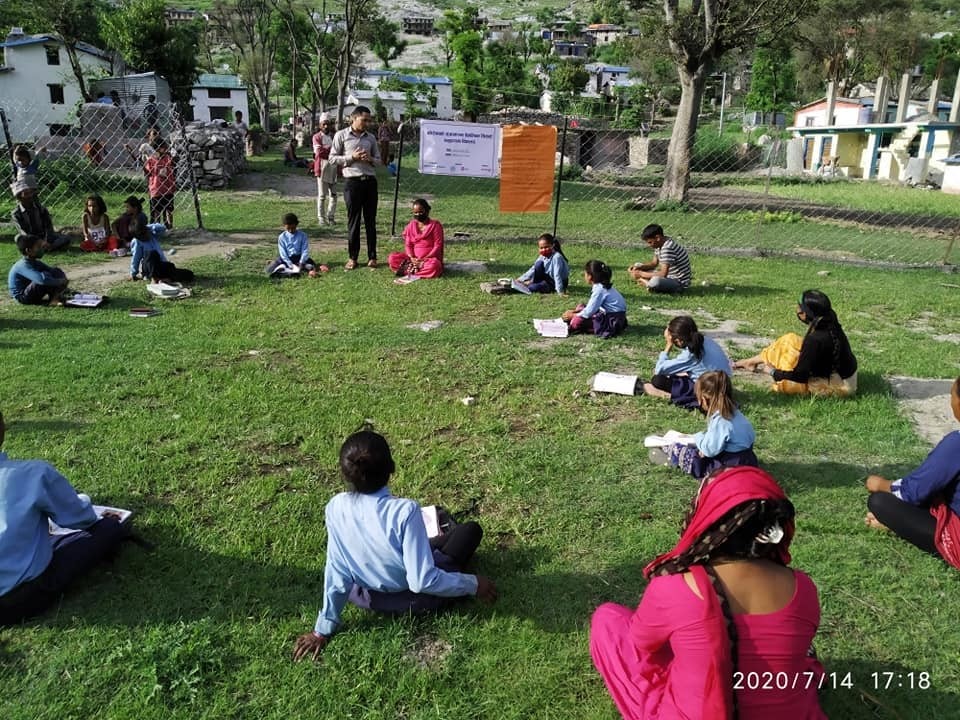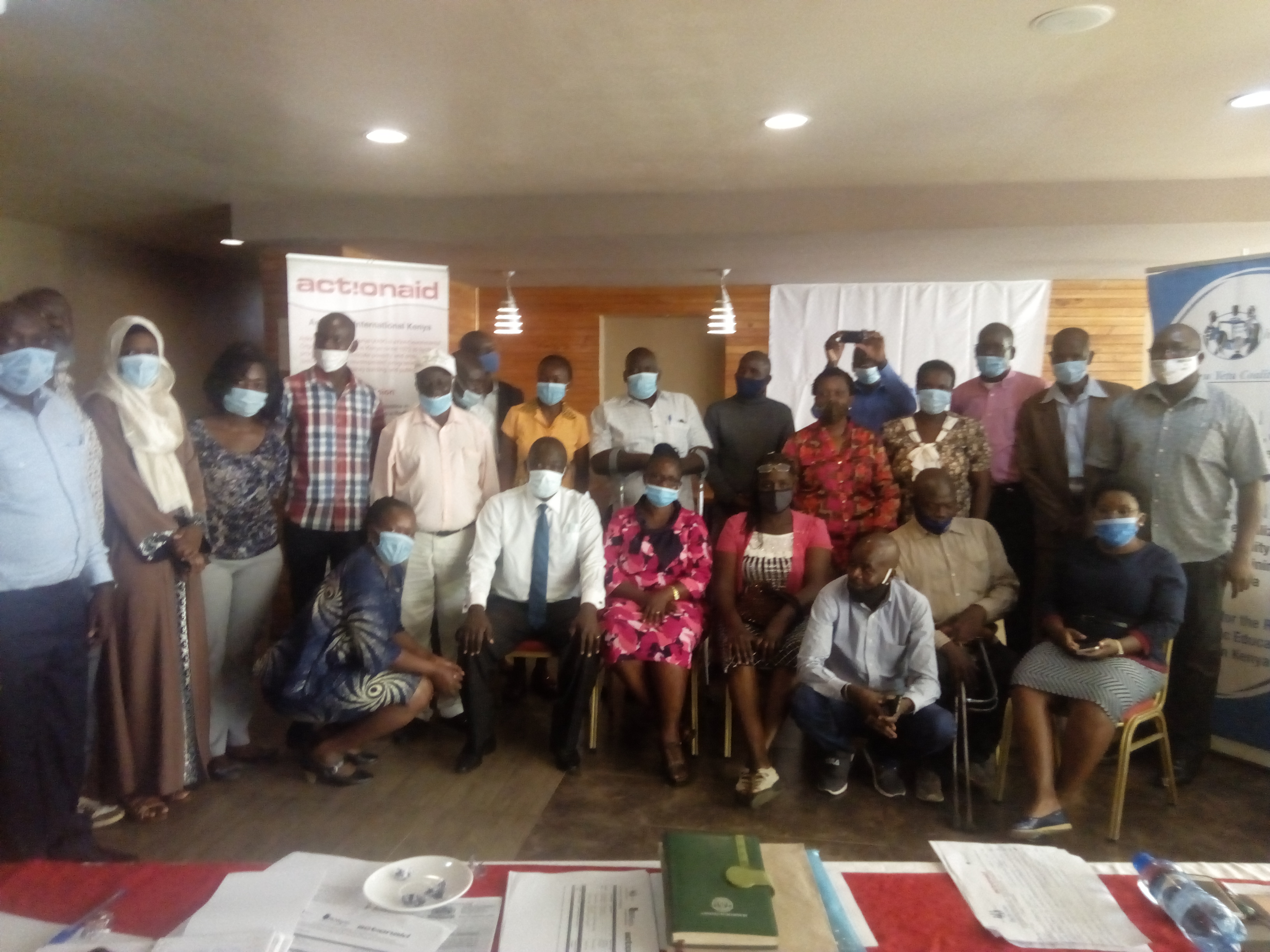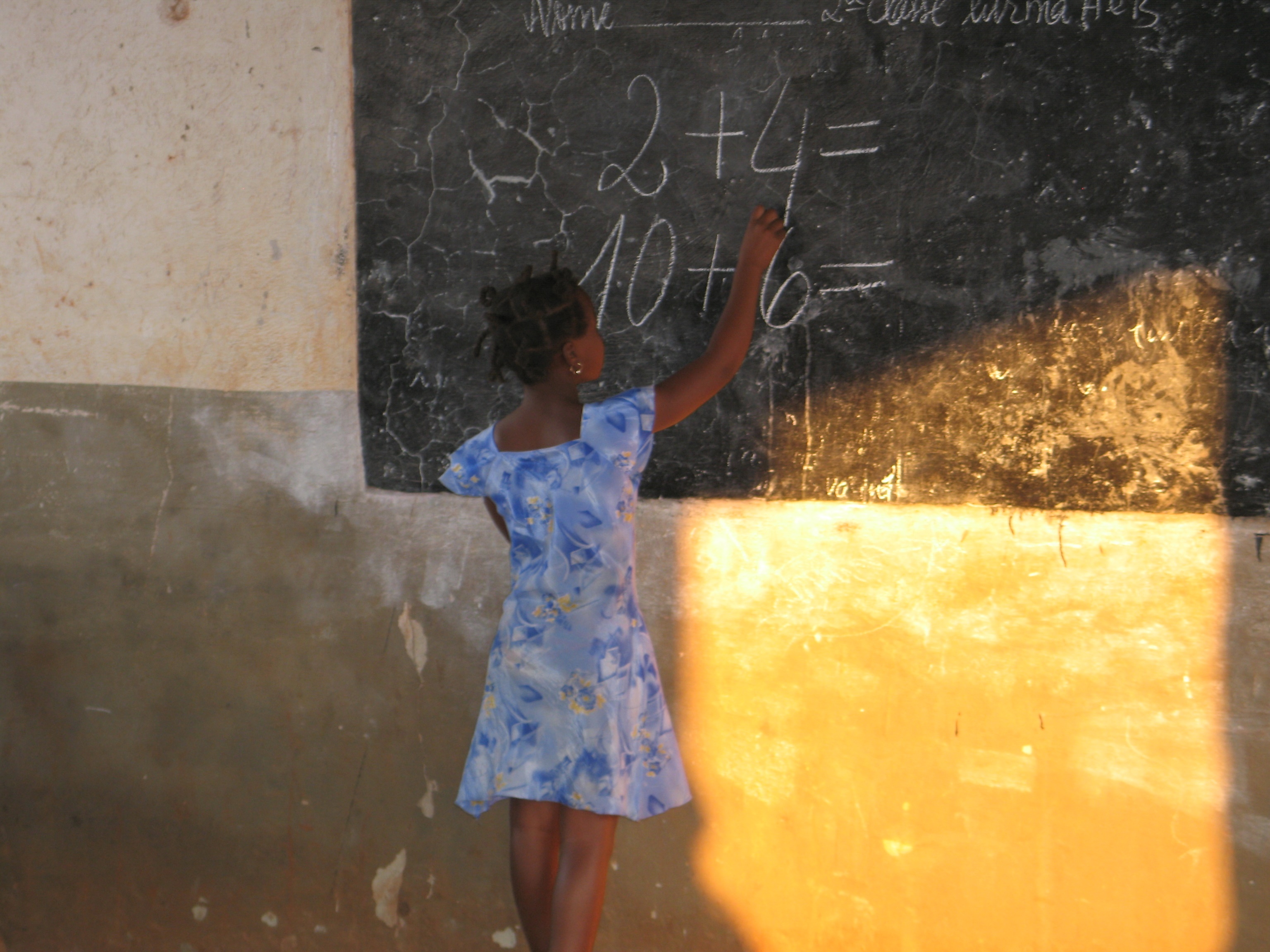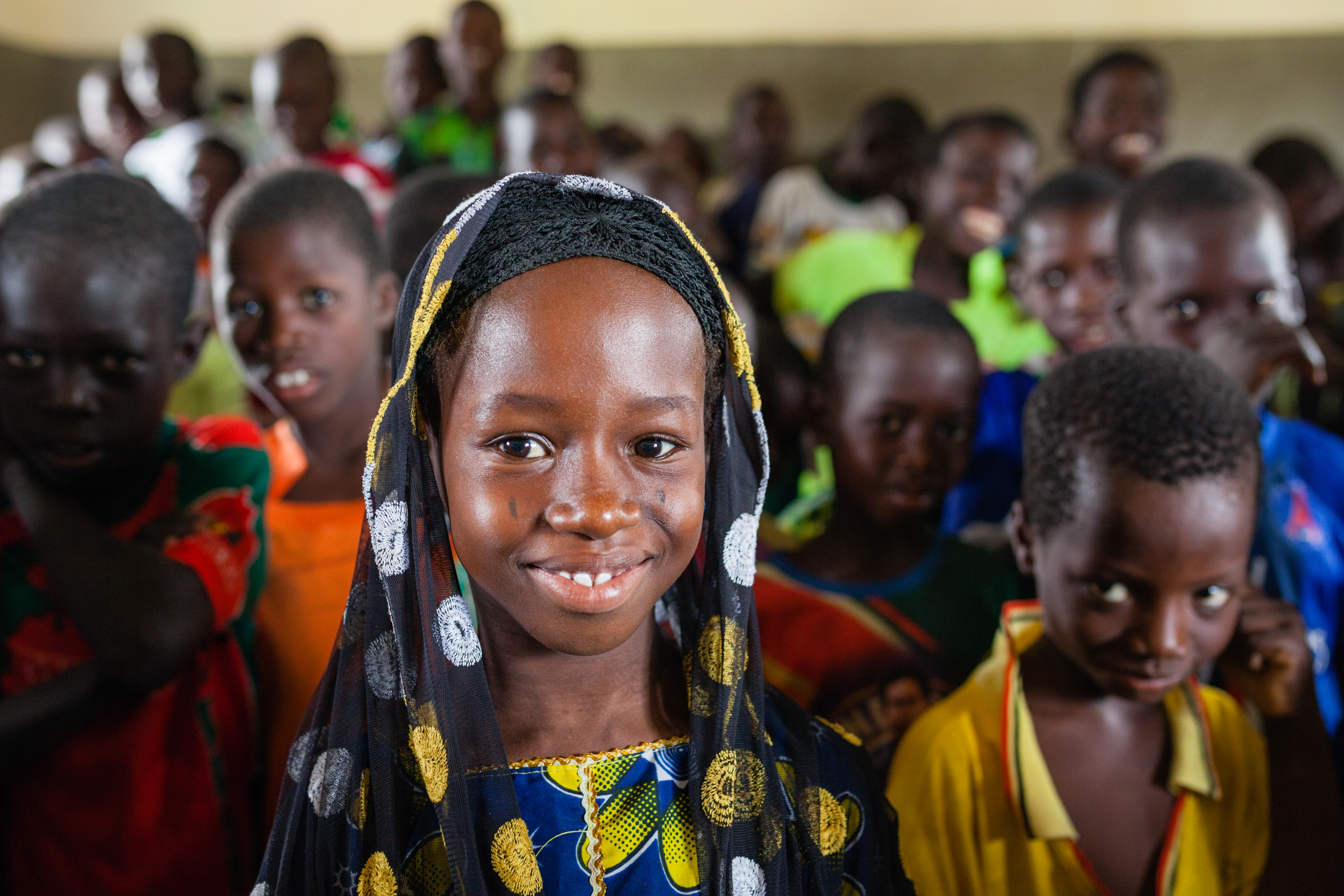Door-to-door teaching in Nepal during school lockdown

NCE Nepal is one of the many national education coalitions supported by Education Out Loud through Operational Component 1 and receive 275.000 USD for national education advocacy over a period of 3 years.
NCE Nepal is a network of 409 different organizations in Nepal working with education. The member organizations include INGOs, NGOs, community-based organizations, teacher’s organizations, and journalists.
NCE Nepal was established in 2003 as the Nepal charter of the Global Campaign for Education (GCE).
In the beginning of the lockdown, the Government of Nepal collaborated with schools and teachers to launch a number of remote learning initiatives. However, around 25 % of students in Nepal do not have any kind of access to the necessary digital and online resources. This was especially a problem for children in hilly and remote areas where there are often poor online connections, poor cable systems, and in some cases even no radio, explains Ram Gaire, Programme Manager of NCE Nepal.
Together with their community-based partner organizations, NCE Nepal decided to take action.
Going door-to-door to reach children in remote areas
“We thought; why not reach the students door-to-door? Together with the local governments and our member organizations, this approach was applied in some hilly districts. The teachers would go to students’ houses, motivate them to take the remote learning classes, or even provide them homework or assignments to be discussed when the teachers came back,” says Shradha Koirala, Senior Programme Coordinator.
The door-to-door teaching was one of many initiatives started by teachers and supported by the local governments to ensure children’s continued education during the pandemic. With the door-to-door teaching, teachers in hilly regions would reach 4-5 houses in a day. They would often visit in the evening after fieldwork had ended, to make sure that they reached the students. In some cases, teachers were even able to establish outside learning centers in villages, where they could gather the children and teach them while maintaining social distancing.
Getting support from the parents
Learning Torch
From one CSO to another: Sharing advice and learnings
NCE Nepal's best advice to others:
It is important to build the capacity and motivation of teachers, as well as ensure dialogue with parents. We engaged not only the teachers, parents, and local governments, but also with well known and respected political, religious and community leaders. The people who do not listen to the voice of the government, will listen to the voice of their community leaders.
They would like to learn:
Private actors’ influence on the education system in Nepal has been amplified during the pandemic and has increased inequalities between public and private education. How do we work to strengthen public education and minimize the influence of private actors on the education systems post-pandemic? Do other CSOs have experience with cases where private actors have played a positive support role for the public education system, and how can we push private actors to do so?
The door-to-door teaching was met with different reactions from the parents:
“When the teachers went to the houses, some parents really wanted their children to learn and were very happy to receive support. However, some of the parents who were financially suffering felt that their children had to participate in the agricultural work to support their families in getting through the challenging times. It was even more difficult for the girls who were often asked to complete all their housework before they could participate in learning,” Shradha elaborates.
Despite mixed reactions, the door-to-door approach presented a unique opportunity for teachers to interact with parents, and to council them about their challenges and their children’s education. This interaction was key in ensuring continued learning for marginalized children. NCE Nepal also engaged political, religious, and other community leaders. This proved to have a very positive impact on parents’ attitude towards their children’s’ continued education.
Students themselves were worried about their exams, being academically behind their peers, and not being able to go back to school because of their families’ financial situation. The door-to-door teaching gave students support and motivation, and created increased dialogue and guidance between teachers, parents, and students, Ram Gaire explains.
Engaging local governments and motivating teachers
From the very beginning of the school lockdown, NCE Nepal and their member organizations engaged in close collaboration with local governments.
“During the lockdown period teachers were very unsure whether they would get paid which pushed them to do other income-generating activities instead of teaching. That is why we collaborated with the local governments to make them assure the teachers that they would get paid, as well as give them incentives and motivation to teach. This made a huge difference,” Shradha explains.
Schools in Nepal have just recently opened again, but not all students – especially from marginalized and remote areas – have returned to school.
“Now that the schools have opened again, our member organizations will still use this door-to-door method to reach students and motivate them to come back to school”, Shradha states.
Teachers are not sleeping campaign
In Nepal, the concept of “Nidaune” (sleeping) is often used about teachers. Prejudice exist that teachers are lazy, and do not teach the students well enough.
During the pandemic, teachers themselves wanted to show their capabilities and engagement, so they launched the “Teachers are not sleeping” campaign to create motivation amongst teachers.
The door-to-door teaching was one of many initiatives stemming from the teachers themselves. Another initiative includes capacity building of teachers to facilitate online classes and learning.
The campaign was supported by local governments, and the implementation of initiatives was very successful.
For Nepali speakers read more about the campaign here.




